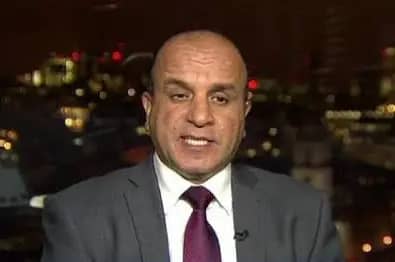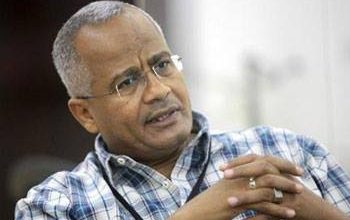
By: Adel Al-Hamidi
Once again, U.S. Secretary of State Antony Blinken is touring our Arab region, with the primary objective of pressuring Netanyahu’s government to capitalize on the assassination of Hamas political leader Yahya Sinwar, pushing for a ceasefire, and beginning the post-war phase of a conflict that has lasted more than a year, claimed tens of thousands of civilian lives, and turned Gaza into an uninhabitable wasteland.
In truth, Blinken has never been a neutral mediator in the Middle East. Rather, he is a key party in the ongoing wars in Palestine, Lebanon, Sudan before them, and now with the flames spreading to Iran. This threatens to engulf many Arab countries with strong ties to Iran.
Although Blinken’s days in office are numbered, with the U.S. on the cusp of elections that polls suggest the Democrats may lose, he remains hopeful of reshaping the Middle East and pushing forward the normalization process between the occupying entity in Palestine and the most significant Arab and Islamic nation, Saudi Arabia.
Politics is ultimately about dreams and willpower. The U.S. dream is to make the occupation a permanent, unthreatened reality and to bury the dream of a sovereign Palestinian state, no matter the human cost. America is driven by its previous successes in the region’s wars, whether in Afghanistan, Iraq, or even Sudan, where it divided the country into north and south. Today, it seeks revenge on Sudan and its African and religious identity by supporting efforts to fragment it through armed militias.
For over a year, during the genocidal war in Palestine and the year and a half of Sudan’s disintegration, the U.S. administration has tirelessly provided military support and political cover for the occupying entity’s crimes against humanity, in blatant disregard for international laws. It has also pressured key Arab states to normalize relations with the occupier, as a de facto reality.
Saudi Arabia, which remains committed to the Arab Peace Initiative it proposed at the 2002 Beirut Summit, is the most important capital in the Arab and Islamic worlds due to its religious significance, geographic location, and vast economic resources. There are reports that Riyadh is hesitating to fully join the BRICS group, led by Russia and China, considering these countries’ stance on the ongoing war between Moscow and Kyiv and their relationship with the U.S. and NATO.
Saudi Arabia has every right to be cautious in establishing relationships with any international alliance and to prioritize its national interests and security. However, forming relations with the occupying entity will benefit neither Saudi Arabia, nor Palestine, nor the security and stability of the region.
The occupier has revealed its true sinister intentions, and this has become evident in various Arab and African countries. The civil wars that have ignited in many major Arab nations would not have happened without the hidden Zionist hands at play. Otherwise, our countries had managed to elect their leaders through peaceful means, only for corrupt, foreign-backed hands to overturn these democratic processes, plunging us into dark, bloody decades of tyranny.
The painful humanitarian scenes in Gaza, Lebanon, Sudan, Yemen, and Syria are disheartening when viewed in isolation from the broader context of human progress. The U.S., intoxicated by its past military victories and global dominance, believes it can reshape the world as it wishes, including our Arab world, forgetting that injustice leads to ruin, while justice is the foundation of stable governance. I believe the time has come for Washington to realize that the reliance on force to lead the world will not succeed without justice and equality.
Some might ask: “How can you, so concerned with Arab interests, warn of the dangers of Zionist policies supported by America, while our own regimes trample on our rights, oppress us, and deny us not just freedom of expression, but the right to life itself?”
My answer is: Once foreign hands are lifted from us, we are capable of managing our own affairs. We have the ability to engage in dialogue and resort to the ballot box, which will protect us from the scourge of tyranny and its evils.
Adel Al-Hamidi is a Tunisian writer and journalist based in London.


